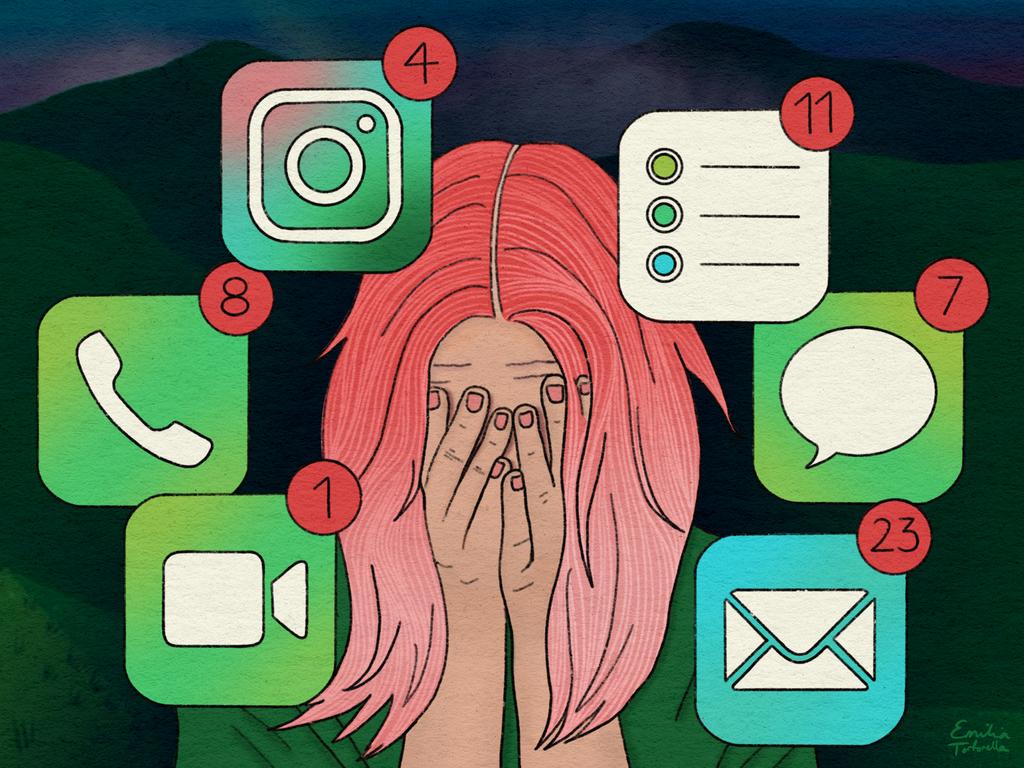Used constructively anger can be useful and healthy
Suppressed anger consumed Sam Parker until he learnt how to turn it into something positive.

For years I’d wake up feeling like someone had punched me in the jaw. Bruxism, to give it its official name, is a condition where teeth involuntarily grind together, often in sleep. The NHS lists the causes of teeth-grinding as “stress and anxiety” and about 10 per cent of the population do it. For most it’s a mild irritation; for me it got so bad a dentist instructed me to sleep wearing a mouth guard, like a rugby player getting ready for a scrum. It was that or lose my teeth by 40.
The ordeal reached its nadir when I arrived at work one morning, bit down on a Pret A Manger baguette and felt my front tooth snap clean off. I had to wear a denture for six months: I’d bypassed 40 and jumped straight to 80. I got a replacement front tooth but the grinding continued.
Until I started therapy. I went because I was sick of being anxious, but instead of talking about what was worrying me, I found myself getting in touch with repressed anger: about people, the world, events from my distant past. Within weeks of verbalising all this to my new therapist, the teeth-grinding stopped. Before long, so did my excessive fidgeting. The knots in my back and shoulders loosened. My entire body, it seemed, had been clenched or vibrating with the effort of containing my rage.
When we think of people with “anger issues” we may picture a man screaming at traffic about to give himself a heart attack. There are anger management books and classes for him. But what about people suffering from the “other” anger problem: the people-pleasers and conflict-avoiders, those who keep the peace by sacrificing their own?

Well, it turns out the toll for the “anger in” people is higher than for the “anger out” lot. It starts early: babies who are taught that expressing anger is unacceptable develop higher cortisol levels — which in turn wreck the immune system, according Sue Gerhardt, the British psychotherapist and author of Why Love Matters. Meanwhile, suppressed anger has been linked to conditions such as auto-immune diseases, an inflamed nervous system and rheumatoid arthritis.
Why is anger so difficult for some people to acknowledge? As a culture, we spent hundreds of years believing anger was a sin, sent by the devil to tempt us towards hell. Today, many people grow up in homes where conflict is never resolved healthily and anger results in aggression or even violence. This teaches those people that anger is best avoided at all costs.
But in fact, when used constructively — ie not by losing your temper or by swallowing it down — anger can be useful and healthy. It alerts us to problems that need to be solved and stops us being taken advantage of. In the moment it can feel righteous and delicious, and in the long term can improve our lives. As well as saving what was left of my molars, using anger properly has helped me get ahead in my career by making me less conflict-avoidant; improved my relationships by giving me an insight into my emotional needs; lowered my anxiety and improved my sleep. It’s taken a long time and a lot of practice, but I’ve learnt to see anger as an asset.
Carl Jung believed that when early experiences teach us that anger is unsafe or pointless, it gets pushed into our “shadows”, only to “burst forth suddenly” in moments that shock us. If that sounds like you, first you need to stop thinking of anger as shameful and instead think of it as a neutral, legitimate response to certain situations. Often — as in my case — you may mistake anger for feelings of anxiety. If someone or something is making you feel excessively sad or worried, try asking yourself, “If I was angry about this instead, why would that be?” Writing down the reasons you have to feel angry can help.
Channelling anger into a physical activity can also recast it as a useful emotion. For me, boxing became a way to try aggression out for size: the more I hit the bag, the more I was able to find my inner rage (and work through it). But it’s not just combat sports — I interviewed people who said the same for long runs or dancing. On the other hand, screaming into a pillow may feel momentarily satisfying, but doesn’t really have long-term benefits for our mental or physical health.

What about dealing with people who make you angry? Anger is a social emotion that often stems from relationships. As a result, it’s best processed via communication with others. A great way to become more comfortable with confrontation is to start reporting calmly to others: “I feel angry right now,” just as you would admit to feeling sad, stressed or hungry. Before embarking on a difficult conversation, you can expand this to say, “I feel angry right now, so I might not express myself as clearly as I would like.” This is called “the discomfort caveat”. It tends to put people onside and can help turn heated arguments into constructive ones. Few things feel better than calmly expressing your anger, having someone acknowledge it, then together agreeing on a new path forward.
Far from being crude or negative, anger is one of the most complex, important and useful emotions we feel and, as I discovered, it’s never too late to change your relationship to it. Doing so might just improve your life. Or at the very least save you some dental bills.
Good Anger: How Rethinking Rage Can Change Our Lives by Sam Parker is out now.
The Times




To join the conversation, please log in. Don't have an account? Register
Join the conversation, you are commenting as Logout